21st CENTURY DEMOCRACY
Media Digest
Selected commentaries by MIT faculty in the national and international media. Organized by year.
21st Century Democracy Homepage
SEPTEMBER 2022
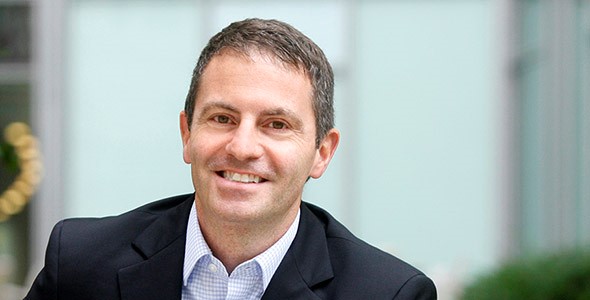
Christopher Capozzola, Professor of History, Senior Associate Dean for Open Learning; photo by Jon Sachs/MIT SHASS Communications
THE WASHINGTON TIMES
The Espionage Act’s Origins | Christopher Capozzola
Historian Capozzola, Senior Associate Dean for Open Learning and an expert on citizenship and the military in modern America, discusses the 1917 law's WWI-era origins and how it has been changed and used variously over time.
Story and Podcast
WORLD AFFAIRS
Has democracy worked? | Evan Lieberman
It’s been nearly thirty years since the fall of apartheid in South Africa. But what happens when the celebrations cease, the news cameras turn away, and the real work of democracy begins? MIT political scientist Evan Lieberman joins Voice of America’s “Straight Africa Talk” host, Haydé Adams, to discuss the lingering “ghost of apartheid,” South Africa's path to political and economic equality, and why South Africa's electoral future gives him hope.
Podcast at World Affairs
MSNBC
Republican war on elections makes casualties of civilian stewards of democracy | Charles Stewart III
Stewart talks with Rachel Maddow about the damage being done to the U.S. democratic process by Republicans pushing Donald Trump's Big Lie and targeting election workers in the process.
Conversation at MSNBC
THE NEW YORK TIMES
Stock trades by nearly 1/5 of Congress show possible conflicts | Charles Stewart III
New York Times reporters matched those potential conflicts with data on committee assignments, provided by the ProPublica Congress API, Congressional Quarterly and Stewart to find examples of trades that overlapped with the member’s committee tenure.
Story at The New York Times
JULY-AUGUST 2022
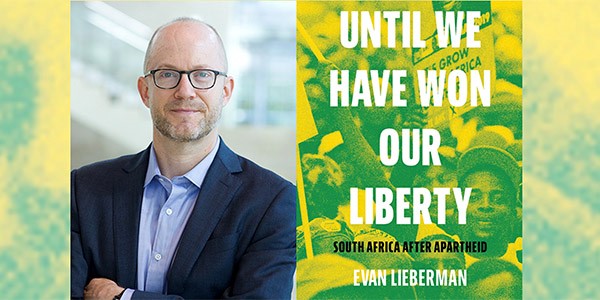
VERMONT CONVERSATION
What the world can learn from South Africa | Evan Lieberman
“At this time when the idea of democracy is under assault, South Africa shows us that (democracy) is still a really promising and probably our best political solution, particularly in diverse societies,” said Lieberman, the Total Professor of Political Science and Contemporary Africa at MIT. South Africa offers “a reminder that we can solve our problems through a combination of elections, good institutions, deliberation and a public spiritedness that is intrinsic to democratic practice.”
Interview | Related story | Evan Lieberman
LAWFARE
How can we decrease the fear of terrorism? | Peter Krause and colleagues
"The gap between the risk of dying from terrorism and the fear of it is large. This misperception can help the terrorists, making their violence more consequential and giving their hateful ideas more attention than they deserve." MIT Security Studies Program research affiliate Krause and colleagues offer a way out. They find that "public education campaigns can lead to a more informed, less fearful, more resilient public. This would represent a significant counterterrorism success in and of itself, while also providing the basis for improved domestic and foreign policy."
Article at Lawfare | Peter Krause
THE WALL STREET JOURNAL
Election officials confront cyber threats, false claims ahead of midterms
While it isn’t new for supporters of a losing candidate from either party to question results, polls show widening divisions. In 2020, 22% of Republicans were confident that ballots were counted accurately nationwide, compared with 93% of Democrats, according to a survey by Massachusetts Institute of Technology researchers. That was a bigger gap than in 2016, when 80% of Republicans were confident in the results showing Mr. Trump’s win, compared with 69% of Democrats.
Story at The Wall Street Journal
JUNE 2022 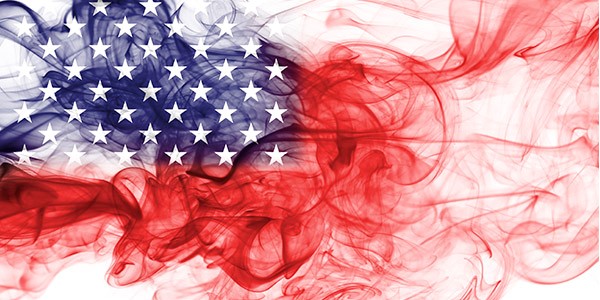
iStock image
NATURE
A journey to overcome a racist legacy
Four guest editors — including Melissa Nobles, MIT Chancellor and Professor of Political Science, embark on a series with the Nature editors, saying "We are leading Nature on a journey to help decolonize research and forge a path towards restorative justice and reconciliation."
Inaugural commentary in the series at Nature
THE WASHINGTON POST
There’s no reasoning with a GOP hijacked by disinformation | Brian Guay quoted
A new study shows how distorted disinformation has become on the political right in the Trump era. Researchers found that “the issue primarily seems to be a supply issue,” Guay said. “There’s just way more fake news on the right than the left.”
Opinion at The Washington Post | Brian Guay
THE WASHINGTON POST
GOP wants to hand-count ballots; that's less accurate | Charles Stewart III
"Computers — which ballot scanners rely on — are very good at tedious, repetitive tasks. Humans are bad at them. And counting votes is tedious and repetitive...While scanners haven’t yet been banned in any state, [my research shows that] support for hand-counting paper ballots has surged among closely attuned Republicans and plummeted among similarly attuned Democrats."
Analysis at The Washington Post | Charles Stewart III
USA TODAY
Mortality gap between Republican/Democratic counties widens | MIT Election Lab
A new study found death rates are improving faster in Democratic counties than Republican ones. Experts are calling this phenomenon the "mortality gap," and say it may reflect state policies, individual health decisions, and a shift in party demographics.
Story at USA Today | MIT Election Data and Science Lab
May 2022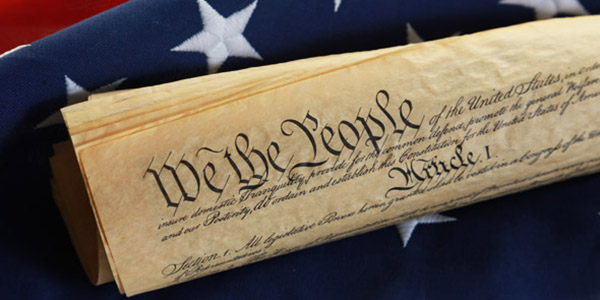
NATURE
Social capital's impact on COVID-19 at local levels | Data by MIT Election Lab
A new study controls for partisanship by measuring by the share of residents who voted for the Democratic presidential candidate in 2016, according to data from the MIT Elections Lab.
Paper at Nature | MIT Election Data and Science Lab
THE GUARDIAN
Meadows texts reveal the Fox News-Trump embrace | Heather Hendershot cited
Hendershot, a professor of film and media at MIT who studies conservative media, says the advent of cable TV news, which began in the 1980s, has prompted a change in acceptable, or permitted, journalistic standards.
Story at The Guardian | Heather Hendershot
ASSOCIATED PRESS
In early primaries, voters favor polling places over mail | Charles Stewart III
In the Virginia governor’s election last year, the percentage of mail ballots cast was slightly larger than four years earlier but noticeably lower than in 2020, said Charles Stewart III, an elections expert and professor of political science at MIT. “Elections are kind of going back to where they were," he said.
Story from the Associated Press | Charles Stewart III
March 2022
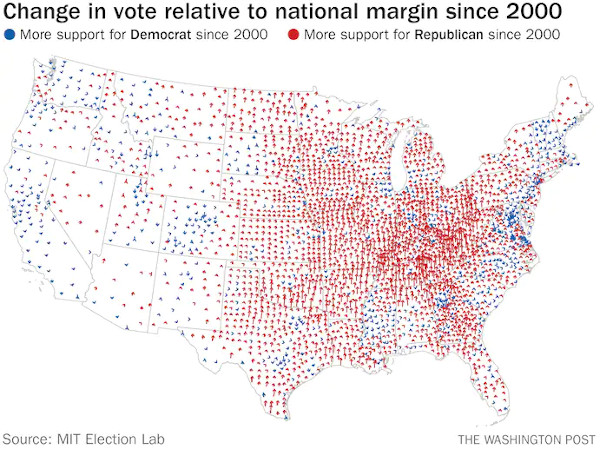
What the political shift in rural counties looks like since 2000 | Election Lab
Using data from the MIT Election Data and Science Lab, the author creates a map showing the shifts by county since 2000. Red arrows indicate counties that voted more Republican relative to the national margin than they had in 2000. Blue arrows voted more heavily Democratic.
Analysis at The Washington Post
February 2022
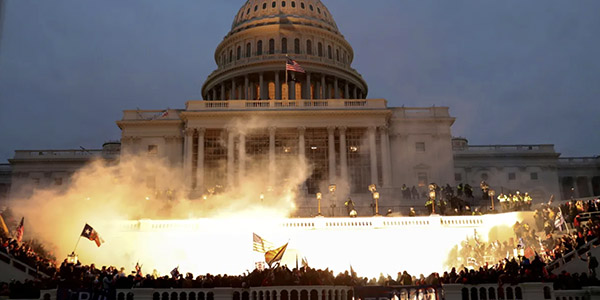
A police flash-bang grenade illuminates the January 6, 2021 insurrection at the Capitol Buidling; Photo: Leah Millis/Reuters
GLOBE AND MAIL
The American polity might collapse. Canada must prepare | Tad Homer Dixon PhD '89
"Today, as I watch the unfolding crisis in the United States, I see a political and social landscape flashing with warning signals." SSP alum Dixon thinkd a right-wing dictatorship is possible in the U.S. by 2030.
Story in the Globe and Mail
THE NEW YORK TIMES
Why millions think it is Trump who cannot tell a lie | Charles Stewart III cited
Stewart, a political scientist at MIT, was blunt in his analysis: "Whereas Reagan spoke of the 11th Commandment, Trump destroyed it, along with many of the first 10."
Story at The New York Times
THE NEW YORK TIMES
We need to think the unthinkable about our country | MIT Fellow Steven Simon
Simon writes, "A year after the January 6 storming of the Capitol...the right has sustained its support for Donald Trump and continued its assault on American democratic norms."
Commentary at The New York Times
BROOKINGS
Assessing the U.S. right-wing terror threat | Daniel L. Byman
MIT Security Studies Program alum Byman writes, "The good news is that deaths from terrorism and other extreme forms of violence was low; the bad news is that violent rhetoric and threats are becoming normalized."
Story at the Brookings Institution
January 2022
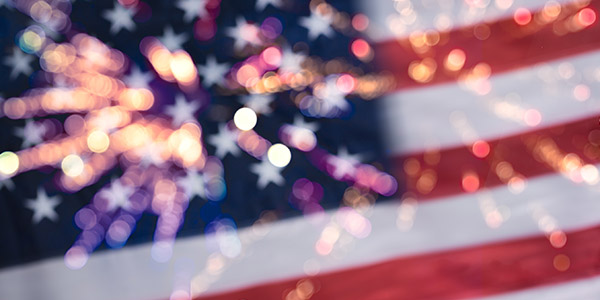
MIT SHASS
Strengthening Democracy: A Sampler of MIT Research and Commentary
Browse a distilled collection of key MIT research and media contributions over the past year on the state of U.S. democracy. What does the country need to do to sustain democracy?
Browse the webpage
ELECTION LAB BLOG
Protecting the linchpin: America's election officials | David Levine
Expert, dedicated election officials are the linchpin for ensuring the integrity of US elections. Levine, an Elections Integrity Fellow at the Alliance for Securing Democracy, writes that although the 2020 presidential election was the most secure in US history, election officials are being threatened and harassed. He recommends ten ways state/local governments can protect and retain America's invaluable election officials.
Commentary
POLITICO
Covid fast-forwards the future of voting | Election Lab research cited
The impact of Covid on U.S. voting was profound: In 2020, a record high 46 percent of Americans cast a mail ballot, up from just 21 percent in 2016. Those numbers, combined with the 26 percent of voters who cast a ballot early in-person (also a record), made the 2020 election the first time in modern presidential election history that a majority of Americans did not vote in person on Election Day.
Story at Politico
WAR ON THE ROCKS
Americans' changing views on the military | Robert Ralston, Ronald R. Krebs
Ralston and Krebs found that, across the political spectrum, Americans express more deference to the military today than in the past and that their views are now more influenced by political beliefs. They also found that "a majority of Americans no longer "affirm the principle of civilian supremacy over the military." Ralston is a postdoctoral Grand Strategy, Security, and Statecraft Fellow in the MIT SHASS Security Studies Program.
Story at War on the Rocks | Robert Ralston
THE NEW YORK TIMES
Inflation alters the political terrain for right-wing populists | Daron Acemoglu quoted
Ahead of elections, right-wing authoritarian leaders are grappling with problems posed by the global rise in prices. MIT economist Acemoglu said that until recently, the low interest rates that began with "the global financial recession...made many countries that had either weak democracies or semi-authoritarianism, or sometimes fully fledged authoritarianism, still attractive to foreign capital.”
Story at The New York Times | Daron Acemoglu
THE GUARDIAN
Fox News lurches further to the right | Heather Hendershot quoted
Hendershot, a Professor of Comparative Media Studies who researches conservative and rightwing media, said that the attention Fox News gives to conspiracy theories and extremism is more than “simply a reflection of the current state of the Republican party...Fox News actively and deliberately adds fuel to the fires of extremism," she said.
Story at The Guardian | Heather Hendershot
December 2021
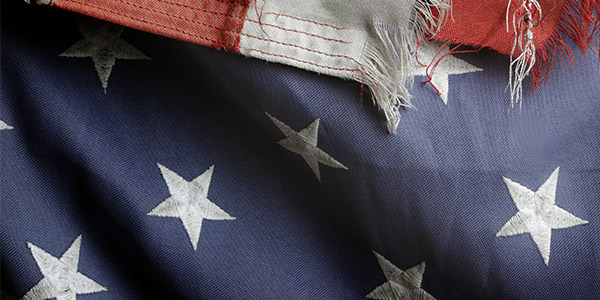
POLITICO
Covid fast-forwards the future of voting | Election Lab research cited
The impact of Covid on U.S. voting was profound: In 2020, a record high 46 percent of Americans cast a mail ballot, up from just 21 percent in 2016. Those numbers, combined with the 26 percent of voters who cast a ballot early in-person (also a record), made the 2020 election the first time in modern presidential election history that a majority of Americans did not vote in person on Election Day.
Story at Politico
THE NEW YORK TIMES
Inflation alters the political terrain for right-wing populists | Daron Acemoglu quoted
Ahead of elections, right-wing authoritarian leaders are grappling with problems posed by the global rise in prices. MIT economist Acemoglu said that until recently, the low interest rates that began with "the global financial recession...made many countries that had either weak democracies or semi-authoritarianism, or sometimes fully fledged authoritarianism, still attractive to foreign capital.”
Story at The New York Times | Daron Acemoglu
THE GUARDIAN
Fox News lurches further to the right | Heather Hendershot quoted
Hendershot, a Professor of Comparative Media Studies who researches conservative and rightwing media, said that the attention Fox News gives to conspiracy theories and extremism is more than “simply a reflection of the current state of the Republican party...Fox News actively and deliberately adds fuel to the fires of extremism," she said.
Story at The Guardian | Heather Hendershot
November 2021
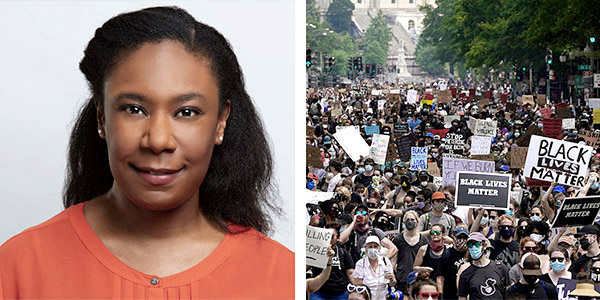
Journalist Kendra Pierre-Louis SM'16, Science Writing
NIEMAN LAB
Time to change how the media reports on protests | Kendra Pierre-Louis SM'16
In an important commentary for democracy, acclaimed journalist Pierre-Louis describes why US media needs to change the way it reports on protests — and offers expert ideas on how to do so. She writes: "A 2010 study that analyzed 40 years of protest coverage...found that [major papers] depicted protests — even peaceful ones — as nuisances rather than as necessary functions of democracy. Why does this matter? The role of protest is to publicize grievances from people who typically exist outside of traditional power structures. It’s why freedom of assembly is written into the Constitution, along with freedom of the press. And the role of journalism is to hold powerful people and institutions accountable to the broader public. But that’s not possible if the way we report on protests is biased from the start."
Commentary | Pierre-Louis Website | Green Washed | Pierre-Louis NYT Climate Desk Archive
WAR ON THE ROCKS
Americans' changing views on the military | Robert Ralston, Ronald R. Krebs
Ralston and Krebs found that, across the political spectrum, Americans express more deference to the military today than in the past and that their views are now more influenced by political beliefs. They also found that "a majority of Americans no longer "affirm the principle of civilian supremacy over the military." Ralston is a postdoctoral Grand Strategy, Security, and Statecraft Fellow in the MIT SHASS Security Studies Program.
Story at War on the Rocks | Robert Ralston
ELECTION LAB BLOG
Protecting the linchpin: America's election officials | David Levine
Expert, dedicated election officials are the linchpin for ensuring the integrity of US elections. Levine, an Elections Integrity Fellow at the Alliance for Securing Democracy, writes that although the 2020 presidential election was the most secure in US history, election officials are being threatened and harassed. He recommends ten ways state/local governments can protect and retain America's invaluable election officials.
Commentary via Election Lab Blog
October 2021
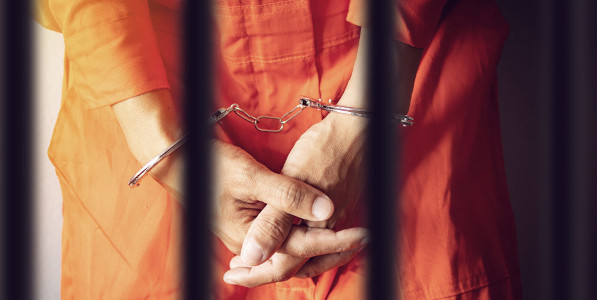
Prof. Ariel White examines the effect of previous incarceration on voting; photo via Getty Images
THE ECONOMIST
Republicans’ trust in democracy has plunged since 2016 | Charles Stewart III
Voters from both parties are least trusting when they lose by a narrow margin.
Story at The Economist
WBUR
Mass. is not the democratic bastion you think it is | Adam Berinsky, Ariel White
Reforms like mail-in voting and expanded early voting are unquestionably important, but do little to redress political inequality. Research shows those reforms should not be credited for record 2020 turnout, and some, like Berinsky, have cautioned that they can actually exacerbate political inequality. Professor White has shown that even those released after serving short jail sentences are less likely to vote than they would be otherwise.
Story at WBUR
September 2021
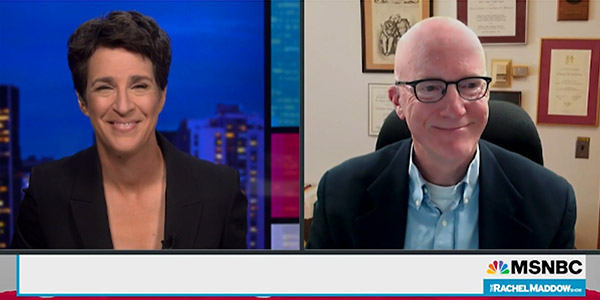
MIT political scientist and election administration expert Charles Stewart III in conversation with Rachel Maddow
MSNBC / THE RACHEL MADDOW SHOW
GOP war on elections threatens civilian stewards of democracy | Charles Stewart III
Stewart talks with Rachel Maddow about the damage being done to the U.S. democratic process by Republicans pushing Donald Trump's Big Lie and targeting America's dedicated election workers in the process. Professor Stewart reiterates that all evidence shows the 2020 election was the most secure in American history and that voting fraud is infinitesimal in U.S. elections.
Conversation at MSNBC | MIT Election Data and Science Lab
THE GUARDIAN
Fight to Vote: Election data reveals the 2020 election was a remarkable success
Charles Stewart, Distinguished Kenan Sahin Professor of Political Science at MIT and an election administration expert, says: “There was great concern about new people not following instructions and having a lot of rejections." But despite the fact that there were double the number of absentee ballots this year, “the percentage of absentee ballots rejected was about what it was in the past.”
Story at The Guardian
MSNBC
California recall was a testing ground for lies about "election fraud"
The incidence of election/voting fraud in the U.S. is infinitesimal. In the last 20 years, about 250 million votes have been cast through mail-in-ballots across the United States. Of that number, Amber McReynolds, CEO of the National Vote at Home Institute, and Charles Stewart, director of the MIT Election Data and Science Lab, estimate the fraud rate at “0.00006 percent of total votes cast.”
Story at MSNBC | MIT Election Data and Science Lab
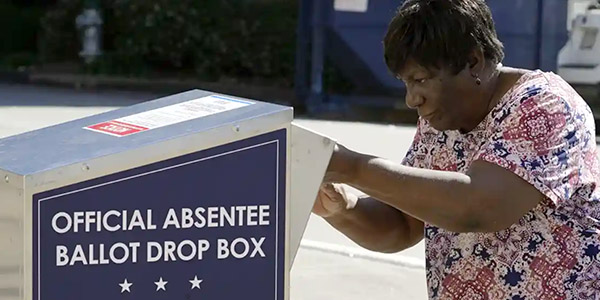
Less than one-third of Americans voted in person on election day in November 2020. Photo: John Bazemore/AP
THE BOSTON GLOBE
Crush of mail-in ballots in Boston surprised officials | Charles Stewart III
In Massachusetts prior to 2016, only 5 percent of ballots were cast by mail, according to Stewart. That figure soared to nearly 42 percent in 2020, when a record 3.6 million ballots were cast by mail.
Story at The Boston Globe
NPR
Democrats now open to new voter ID rules | Charles Stewart III
"Regardless of how you poll, voters like a requirement for photo ID," said Charles Stewart, who leads the MIT Election Data and Science Lab. "It's kind of a no-brainer for a large swath of the American public...including most Democrats."
Commentary at NPR
CNN
Private funding was key in some 2020 elections | Charles Stewart III
Stewart said the reliance on private money for a basic government function did add an "unseemly...bake sales for democracy" element to the 2020 elections. But he said some states seem to be racing to cut off the private funds without also trying to determine what's an adequate level of state funding for elections to run smoothly and appropriating the money to do so.
Story at CNN | MIT Election Data and Science Lab
August 2021
THE WALL STREET JOURNAL
How to get the most value from the infrastructure bill | James Poterba
"We want to avoid the bridges to nowhere," said Poterba, the Mitsui Professor of Economics. Noting that infrastructure in the U.S. already tends to be far more expensive than in other countries, he added that ... "We should be looking at the ways in which we can do the spending so that we are getting the most bang for the buck."
Story at The Wall Street Journal
AXIOS
Rich world’s vaccine policies may jeopardize climate cooperation | Banerjee, Duflo
The failure of rich countries to share vaccines and financial assistance with poorer ones during the pandemic will exacerbate the rise in global poverty and could come back to haunt them, say Nobel Prize-winning economists Esther Duflo and Abhijit Banerjee. Duflo initially believed the pandemic would produce a “more cooperative world order” as rich countries showed solidarity with the developing world, potentially boding well for future collaboration on issues like climate change. Now she fears the opposite.
Story at Axios
July 2021
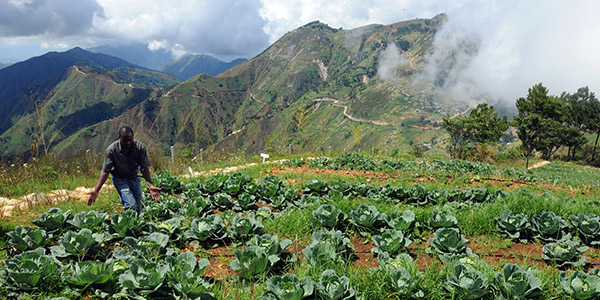 Farm in Haiti; image via Wikipedia
Farm in Haiti; image via Wikipedia
AMERICAS QUARTERLY
How the U.S. could really help Haiti | Malick Ghachem
Foreign involvement is inevitable, but mistakes of the past can be avoided. MIT Professor of History Ghachem, an expert in constitutional law and Haitian history, says Haiti will benefit from a "political and constitutional reboot" combined with a "social contract in which international institutions support the country’s least well-off citizens."
Commentary at Americas Quarterly
NBC
Haiti and durable democratic institutions | Malick Ghachem
“The last time a Haitian president was assassinated was 1915, and it triggered a U.S. military occupation,” Ghachem says. He encourages the U.S. and international community to engage the country in a dialogue “that permits Haiti to exit its current constitutional void and gives it a chance to set in place durable democratic institutions.”
Story at NBC
THE WASHINGTON POST
July 4th is Independence Day for two countries. For one it is hollow. | Chris Capozzola
MIT professor of history Capozzola writes, "most Filipinos won’t be marking today’s anniversary as a national holiday. Why? Because for the Philippines, independence from the United States didn’t bring full national sovereignty."
Story at The Washington Post
THE WASHINGTON POST
The AI we should fear is already here | Daron Acemoglu
Current AI technology is already impacting the labor market, criminal justice system, and political discourse. Economist and Institute Professor Acemoglu calls for societal and governmental oversight to regulate AI's effects on the economy and democracy.
Opinion at The Washington Post
June 2021
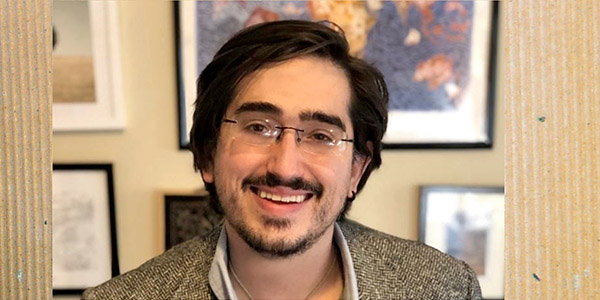
Gabriel Magnus Nahmias, PhD student, MIT Political Science
POLITICAL SCIENCE
What prompts people to get engaged in civic action? | Gabriel Nahmias
"Connecting with somebody at a personal level is how you get people engaged," says Nahmias. So why is this approach so rare? PhD candidate Nahmias is identifying how to mobilize civic efforts on behalf of more equitable societies.
Story by Leda Zimmerman for Political Science
UNDARK MAGAZINE | KNIGHT SCIENCE JOURNALISM AT MIT
Countering disinformation in the public square
The goal of many disinformation campaigns is to create a fog of competing facts so that people give up and think: “Who’s to say what’s true or false?” To counter such campaigns, experts recommend testing information sources with distilled versions of fact-checker strategies, including this four moves approach.
Story at Undark
May 2021
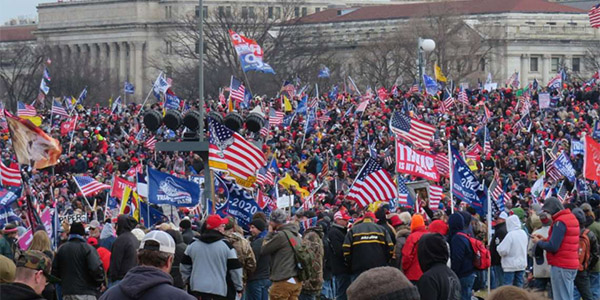
Crowd in Washington, D.C., shortly before speeches on January 6, 2021; Photo by Gregory Starrett
“Every age has its own fascism. And we see the warning signs wherever the concentration of power denies citizens the possibility and the means of expressing and acting on their own free will."
— Primo Levi, from "A Past We Thought Would Never Return," quoted in "American Fascism," a new series by MIT Professor of Anthropology Heather Paxson and colleagues
SOCIETY FOR CULTURAL ANTHROPOLOGY
American Fascism | Heather Paxson, Christopher Nelson, Brad Weiss
"If the January 6th attack on the Capitol represents a return of fascism, when was it here before? Where has it been? If we find fascism in the streets and in the media, should we also be looking elsewhere? The essays that we have assembled here are the first, urgent answers to these questions for 2021.
Series at The Society for Cultural Anthropology
SLATE
The dangerous part of Georgia's voter suppression law that no one is talking about
Following the 2000 election, researchers at Caltech and MIT found that as many as 3 million voters across the country may have been disenfranchised due to voter registration mishaps. Yet provisional ballots were available in only one-third of states.
Story at Slate
BLOOMBERG
Why Republicans are still skeptical that Trump lost. He did. | Stewart, Clark
A new paper by MIT political scientists Jesse T. Clark and Charles Stewart III drills down into data on the topic and turns up some remarkable findings about voter confidence in the wake of the 2020 election. In particular, although the gap between the two sides' belief that the contest was fair is by far the largest on record, the explanation may not be what one expects.
Story at Bloomberg
THE WASHINGTON POST
Does the new Georgia law 'eliminate hours of voting'? | Charles Stewart III
Stewart said: “I had also heard this generally reported as expanding early voting, so I'm surprised by the characterization.” He studied the precise language changes at our request and said it indicated an expansion of hours, especially in rural counties.
Story at The Washington Post
April 2021
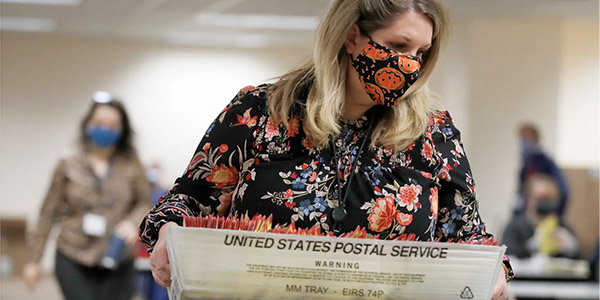
Mail-in ballots, Salt Lake County election office, October 2020. George Frey/AFP via Getty Images
More Americans than ever before voted by mail in the 2020 general election, about 46 percent of all voters.
— via the MIT Election Data and Science Lab
WBUR
Mass. Dems want to make vote-by-mail permanent | Charles Stewart III cited
Stewart notes that there's no particular reason for Republicans to oppose vote-by-mail. "I like to remind people that before this election, absentee ballots were considered to be a Republican mode of voting," he said.
Story at WBUR
THE NEW YORK TIMES
Democrats splinter over strategy to push voting rights bill | Charles Stewart III cited
“I’ve been saying that no election administrators were harmed in the making of this bill,” quipped Charles Stewart III, a leading expert on elections. “Running elections is detail-intensive. You’re adding new features and adding complexity, not just shifting complexity from one place to another.”
Story at The New York Times
VOX
Republicans' efforts to restrict mail voting could backfire | MIT Election Lab data cited
More Americans than ever before voted by mail in the 2020 general election, about 46 percent of all voters, according to the MIT Election Data and Science Lab. A large motivator behind this was to avoid the in-person contact of voting lines and Election Day polling places.
Story at Vox
March 2021
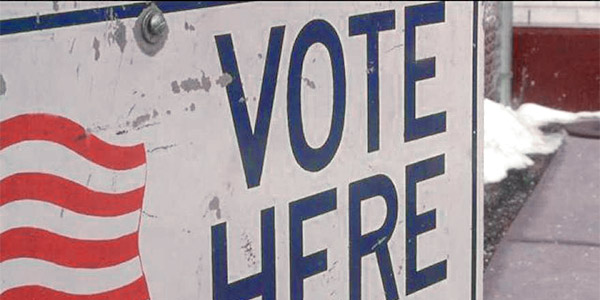
Sign via CBS 58, WDJT, Milwaukee
THE HILL
Now is the time to prepare for the next election emergency | Charles Stewart III
"Election officials face challenges every year: bomb scares, no-show poll workers, blizzards, power outages, hurricanes and more, usually regional in scope. In 2020, they faced and met a true national threat to a presidential election. Now is the time to focus on what they learned — and to prepare for the next crisis before it arrives."
Story at The Hill
VOX
The new Republican war on voting rights | Charles Stewart III
Though states may try to change the rules to discourage methods of voting that members of one party favored in the past, Stewart argues that “the most important factor influencing turnout, both its level and composition, are the efforts by the campaigns to turn out voters.”
Story at Vox
FEBRUARY 2021
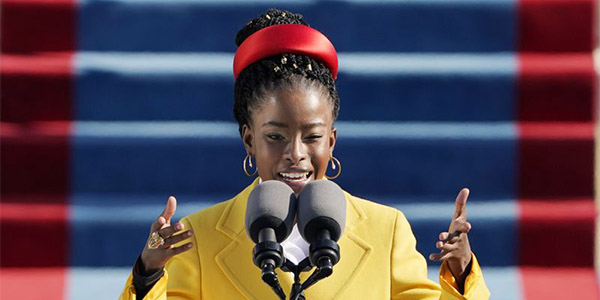
American poet Amanda Gorman; Photo by Patrick Semansky, AFP via Getty Images
NEW YORK DAILY NEWS
Biden and the Humanities | Sandy Alexandre
"When you read, understand and choose to learn from history, your actions are aligned with a belief in the humanities’ importance as a guiding principle. ... Presidents who are vocal about believing in science should also be vocal about their support of the humanities — the power of history, language, the imagination, critical thinking and hope. ...The long arm of their appreciation, or lack thereof, is inevitably reflected in our zeitgeist."
Commentary
THE NEW YORK TIMES
GOP tries to make it harder to vote | Stanford-MIT Healthy Elections
“There's going to be a rush in the next year to legislate certain types of election reforms,” said Nate Persily, a Stanford University law professor and co-director with MIT Professor Charles Stewart III of the Stanford-MIT Healthy Elections Project. “The jury is still out on whether the lesson from this election will be that we need to make voting as convenient as possible, or whether there will be a serious retrenchment that makes voting less accessible.”
Story
WGBH
On President Biden's $1.9 trillion stimulus plan | Jonathan Gruber
Gruber discusses how the plan could affect the economy at large. His latest book is Jump-Starting America: How Breakthrough Science Can Revive Economic Growth And The American Dream.
Audio Story at WGBH
THE GUARDIAN
Why podcasting works for Pence | Heather Hendershot
Pence might not find it entirely straightforward to gain listeners, however, said Hendershot, who studies conservative and rightwing media. “Pence’s effort will be interesting to watch because he has alienated so much of Trump’s base by fulfilling his constitutional mandate and not overturning the election,” Hendershot said.
Story at The Guardian
JANUARY 2021
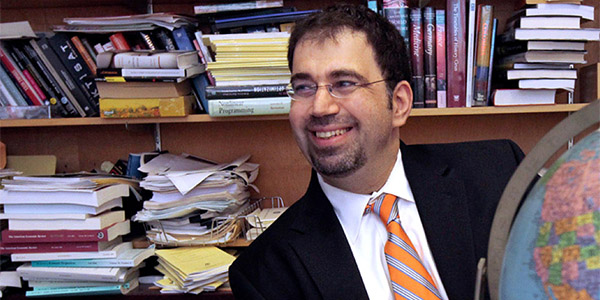
Economist Daron Acemoglu, Institute Professor
THE ECONOMIST | 23 January 2021
What is the link between economic crises and political ruptures?
Recent research by MIT economist Daron Acemoglu and colleagues illuminates how networks of economic elites and a center-right establishment contributed to Italy's descent into fascism.
Commentary at The Economist
NATIONAL PUBLIC RADIO
Why Nations Fail, America Edition | Daron Acemoglu
"We wanted to figure out if the insurrection is a sign our nation is failing, and, if so, if there's anything we can do about it. So we called up the authors of Why Nations Fail. "I don't think January 6th was a singular day of failure," says MIT economist Daron Acemoglu, who co-authored the book with economist James Robinson (U of Chicago). "What surprises me is why it took until January 6th." Drawing on decades of economic research, Why Nations Fail argues that political institutions—not culture, natural resources, geography—explain why some nations become rich while others remain poor.
Commentary at NPR
NPR | WBUR
The case for censure | Charles Stewart III
"Dealing with our current crisis requires creating the conditions for electoral politics to marginalize opponents of constitutional government," writes MIT professor and election expert Stewart, describing Congressional censure.
Commentary at WBUR
THE WALL STREET JOURNAL
Investors assumed democracy would endure | Daron Acemoglu
Enacting policies, which requires some degree of bipartisanship and agreement on facts, will grow harder “if polarization continues in this country,” said Acemoglu.
Story at The Wall Street Journal
NBC
MIT historian on the violence at Capitol Hill | Chris Capozzola
Capozzola explains why he thinks removing President Trump by invoking the 25th Amendment would be “difficult.”
Commentary at NBC
THE GUARDIAN
How the much-litigated ballot deadlines impacted the election | Charles Stewart III
There's always a deadline, and there are good reasons for why it should just be election day, said Stewart. “One is the optics issue that arose in this election,” he said. Ballots that arrive after the election give fodder to those who want to undermine the legitimacy of the voting process.
Story at The Guardian
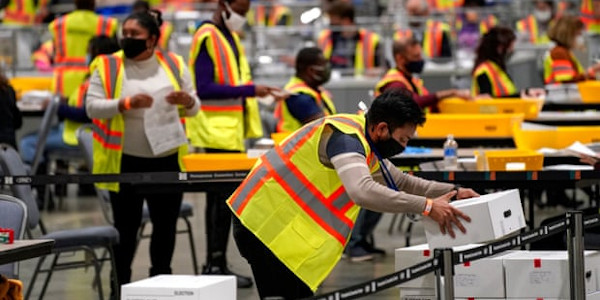
Election workers, Pennsylvania convention center; photo via The Washington Post/Getty Images
THE GUARDIAN
Fox News support for the presidency will now change | Heather Hendershot
“Of course we can expect it to be relentlessly negative, but it’s a challenge on some levels, because [President-elect Biden] is a 78-year-old White man, with a fairly moderate history,” said Hendershot, a professor of film and media at MIT who studies conservative and rightwing media.
Story at The Guardian
CBS
Who turned out for Warnock and Ossoff in Georgia? | Charles Stewart III
An analysis by Charles Stewart of MIT showed Warnock over-performed Ossoff by relatively more in Democratic precincts and in precincts with more White voters, suggesting that straight-ticket Democratic voting was less common among White voters than among Black voters.
Story at CBS
THE NEW YORK TIMES
Long waits to vote in America's poorest neighborhoods | MIT Election Lab
The 2020 Survey of the Performance of American Elections (SPAE), conducted by the MIT Election Data and Science Lab, found that long waits were much more common among early voters than they were on Election Day. The SPAE found that 14 percent of Election Day voters waited more than 30 minutes to vote — an increase from 2016.
Story at The New York Times
DECEMBER 2020
THE NEW YORKER
The deadly cost of America' pandemic politics | article quotes Adam Berinsky
Berinsky, a political scientist at MIT, "who studies the links between public opinion, misinformation, and political polarization, says a key problem about pandemic information in the U.S. has arisen because, in a networked age, fringe misinformation spills easily into mass consciousness. "By polluting the information ecosystem, they cause others to doubt," Berinsky says, "Much of the responsibility for quelling misinformation rests with our politicians. It starts at the top. Had there been a unified response from elected leaders, there would have been more unified attitudes among the public.'"
Story at The New Yorker | Related: Berinsky on the responsibilities of political leaders
FRONTLINE
Executive Producer Raney Aronson-Rath talks with OpenDocLab
What does it mean for a national investigative journalism organization to innovate in a disrupted media landscape?
Story at Frontline
THE WASHINGTON POST
The suburbs are the new swing constituency | Charles Stewart III
Stewart writes, "If there really is a meaningful rural-urban continuum in electoral politics, these are the system's median voters." White, middle-class voters in small cities and the suburbs of big cities "may become the swing voters most chased by presidential campaigns."
Commentary at The Washington Post
SALON
Grappling with a divided nation | MIT Election Lab
Biden attracted more poor and low-income voters than President Trump both in the aggregate and in key states like Michigan. Last week, the director of the MIT Election Data and Science Lab noted that this "appears to be the biggest demographic shift I'm seeing. And you can tie that to [Trump's] tax cuts [for the wealthy] and lower regulations."
Story at Salon | MIT Election Lab
NBC
Voters acted swiftly but USPS delays disenfranchised thousands | Charles Stewart III
“I'm not about to give a participation trophy to the USPS this time,” said Stewart. “But I will give credit to voters who got the message and heeded the warnings about the possibilities that their ballots wouldn't get delivered and got them in on-time...It was really heartening to see not only the experiment going well, but everything it took to make it happen."
Story at NBC
NOVEMBER 2020
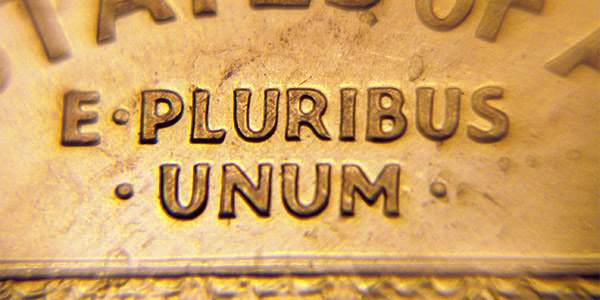
WALL STREET JOURNAL
Administrators, ordinary citizens together made a fair, safe, secure election possible | Stewart and Persily
Leading election experts Charles Stewart III of MIT and Nathaniel Persily of Stanford, co-founders of the Healthy Elections Project, cite the smooth administration of the 2020 Election, suggest updates for the mail-in balloting process, and give thanks for "the heroic and successful efforts of election administrators around the country."
Commentary at The Wall Street Journal
THE NEW YORK TIMES
Democracy worked this year. But it is under threat. | Healthy Elections Project
America's pandemic election was a remarkable, unlikely feat. “The challenges and obstacles were perhaps the highest in history, or at least since the Spanish Flu in 1918, and we saw fewer problems than in any presidential election since Bush v. Gore,” said Nathaniel Persily, a Stanford law professor and co-director of the Stanford-M.I.T. Healthy Elections Project.
Story at The New York Times
MARKETPLACE
On the history of voting technology | Charles Stewart III
“Voting would be very different in the United States without the use of computing technologies,” says Stewart, “much like all of public policy, and actually all of our commercial lives, would be very different without the use of information technology to create the networks to do all of the transactions and allow us to do almost everything we do hundreds of times every day.”
Full story via Marketplace
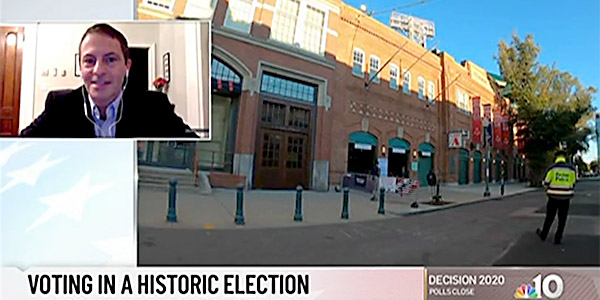
NBC
Voting in a historic election | Christopher Capozzola
Capozzola, a Professor of History, tells NBC that while Americans have voted before during a pandemic, and in times of civil unrest, and also in very large numbers — the combination of all three factors in one election is unprecedented in American history.
Commentary at NBC
BLOOMBERG
White voters in swing-state counties send the GOP a warning | Charles Stewart III
“Metropolitan counties, whether they are the central city or in the surrounding suburbs, have all shifted” away from Trump, said Stewart. “People who have college degrees who are not the top earners, and are also younger, have internalized a set of values that cause them to recoil at Trump's behavior.”
Story at Bloomberg
BUZZFEED
Our obsession with polls could be interfering with democracy | Election Lab
“Forecasting increases certainty about an election’s outcome, confuses many, and decreases turnout....Lonna Atkeson, a member of the MIT Election Data and Science Lab, said that effect may have played a role in this year's Maine senate race."
Story at Buzzfeed
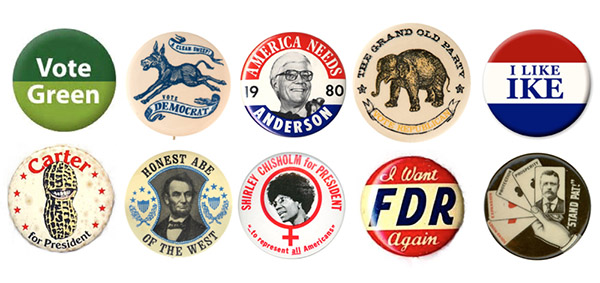
THE GUARDIAN
US voter demographics in 2020 looked a lot like 2016 | Charles Stewart III
The picture appears to be strikingly similar to what it was in 2016, said Stewart, founding director of MIT's Election Data and Science Lab. “There were slight changes, but the changes in the electorate, at least the ones who showed up to vote on election day, are much less dramatic than we were being led to believe by the pre-election polls.”
Commentary at The Guardian
SLATE
Unlocking the vote in jails
"The majority of the 745,000 people held in local jails are eligible to vote, but few do. Advocates say it’s voter suppression on a national scale. People in jail also disproportionately come from communities of color that are heavily policed. 'We do start to think about those neighborhoods losing more voters than others,' said Ariel White, an MIT political scientist. 'And that concentration really starts to matter in, for example, local elections,' which can sometimes hinge on a few hundred votes."
Story at Slate
THE NEW YORK TIMES
Let states split the Electoral College votes | Peter Diamond
Professor emeritus Diamond writes to suggest that while ratification of a constitutional amendment to end the Electoral College and rely on the overall popular vote would be very difficult, another "step in the same direction would be an amendment requiring each state to divide its electoral vote between the two leading candidates within the state, in proportion to the votes received."
Letter at The New York Times
OCTOBER 2020
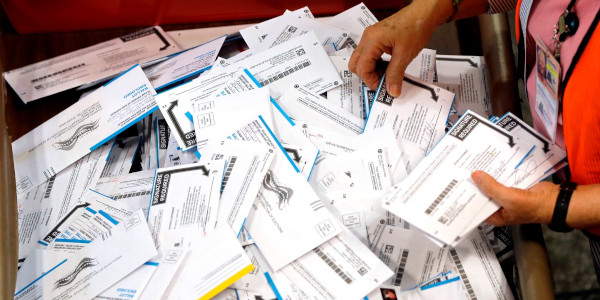
Mail-in ballots, Portland, Oregon, 2016; photo by Don Ryan/AP
CNN
How we can avoid an election disaster | MIT Election Data and Science Lab
According to data analyzed by the MIT Election Data and Science Lab, past mail-in ballot trends suggest that mail-in ballots would have been about 30% of total ballots cast in 2020 if the pandemic wasn't a factor. That's already ample reason to wait — patiently — for all votes to be counted in swing states.
Story at CNN
THE WALL STREET JOURNAL
Actually, we will know a lot on election night | Charles Stewart III
Stewart writes, "If early election-night reports show that Mr. Biden has performed 4 percentage points better than Mrs. Clinton in states that can report their ballots quickly—such as Florida, which she lost by 1.2 points—Mr. Trump will almost certainly lose."
Commentary at the Wall Street Journal
NATIONAL PUBLIC RADIO
Early voting gets underway for the 2020 Election | Charles Stewart III
Issues have shown up during early voting. NPR's Steve Inskeep asks Charles Stewart, professor of political science at MIT, for insight. "I see challenges that people are facing," Stewart says, "and I see disagreements about what constitutes convenience. But I think that that's different from saying that there's widespread voter suppression."
Conversation at NPR
THE NEW YORK TIMES
More Democrats request mail ballots in key states | Healthy Elections Project
The Stanford-MIT Healthy Elections Project is tracking more than 320 lawsuits in 44 states over the 2020 elections. While the details of the suits vary — be it a dispute over counting ballots that lack postage stamps in Nevada or a fight over the universal mailing of ballots to seniors in Texas — most center on Democrats wanting to count more ballots, and Republicans trying to block ballots from being counted.
Story at The New York Times
VOX
Oregon already votes by mail. Here's what it can teach us. | Charles Stewart III
Stewart, an elections expert at MIT, says he has “not drunk the Oregon Kool-Aid” on mail-in voting but does think the state offers a case study for where and when vote-by-mail can work. It has tended to catch on in Western states, where some people live great distances from county or city centers, so vote-by-mail makes even more sense.
Story at Vox
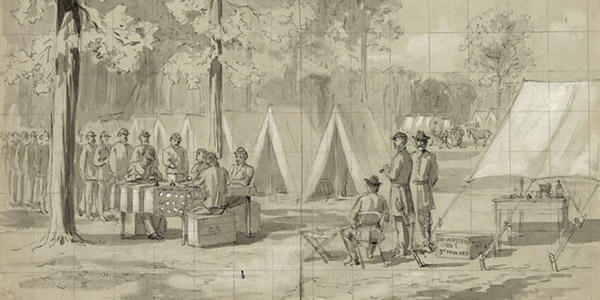
Pennsylvania soldiers voting published in the Oct. 29, 1864, issue of Harpers's Weekly. Library of Congress
TIME
Voting by mail dates back to America's earliest years | Charles Stewart III
Despite claims of vote fraud when voting is conducted outside of polling places, only 0.00006% of the 250 million votes by mailed ballots nationwide were fraudulent, according to MIT political scientists who analyzed numbers from the Heritage Foundation's Election Fraud Database.
Story at TIME
US NEWS AND WORLD REPORT
Why older citizens are more likely to vote | Andrea Louise Campbell
“It is easier for older people to see the relevance of government in their lives. Two of the biggest federal spending items, Social Security and Medicare, are conferred largely on the basis of age,” says Andrea Louise Campbell, a political science professor MIT.
Story at US News and World Report
CNN
Can U.S. citizens vote in jail? It depends. | Ariel White
“We don't really know what the full picture is of jail-based disenfranchisement, partly because of this very decentralization,” says Ariel White, an associate professor of political science at MIT.
Story at CNN
SALON
Swing state hurdle: returning your absentee ballot | Healthy Elections Lab
"Some voters in Milwaukee, Wisconsin, for example, reported confusion over where they could drop off their ballot in-person," an analysis of August's primaries in 16 states by the Stanford-MIT Healthy Elections Project said.
Story at Salon
THE WASHINGTON POST
Threat from nuclear weapons has grown in the Trump years | Vipin Narang
"Trends were already moving in a worrisome direction before Trump took office, and any administration would struggle to strike substantive new arms control deals in the current environment, said Narang. But Trump has exacerbated the challenges, he argued."
Story at The Washington Post
THE NEW YORK TIMES
Questions about unchecked nuclear authority revive | Vipin Narang
“The history of obfuscating the medical condition of presidents is as old as the Republic,” said Vipin Narang, a professor at MIT who has studied the nuclear command-and-control chain. “The issue here is that the dex—shorthand for dexamethasone—can make you paranoid and delusional.”
Story at The New York Times
SEPTEMBER 2020
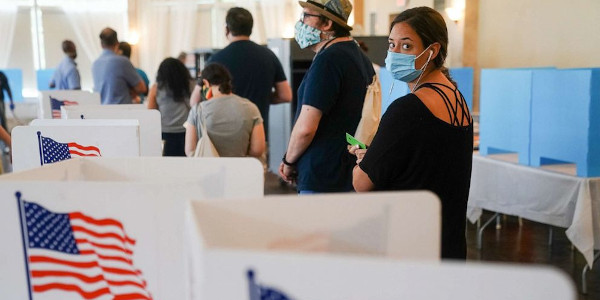
People wait in line to vote in Georgia's primary election; Elijah Nouvelage/Getty Images
ABC NEWS
Early in-person voting a strong option for concerned voters | Charles Stewart III
Stewart, a professor of political science at The Massachusetts Institute of Technology, has been studying voting patterns over the last two decades and told ABC News some early voting poll sites and drop-off centers provide voters with better site resources than others.
Story at ABC News
FORTUNE
The Republican Party turns its platform into a person | Elizabeth Wood
Vladimir Putin's United Russia Party followed such a path in 2007, when it began referring to its party manifesto as the “Putin Plan.” As Elizabeth Wood, professor of Russian and Soviet history at MIT, has written, the party referred to it “as if such a plan really existed and as if it contained genuine content.” In reality, she says, it was whatever Putin said it was.
Story at Fortune
THE WASHINGTON POST
The 2020 conventions are what the parties have dreamed of | Heather Hendershot
Hendershot writes that the media images of law enforcement beating and gassing American protesters in recent months inevitably evoked iconic footage of 1960s protests, especially those that took place during the 1968 Democratic National Convention in Chicago. Being online will give parties more control of how television viewers experience their conventions.
Commentary at The Washington Post
THE BOSTON GLOBE
Voting during a pandemic
"Protecting the right to vote depends on investments in US voting infrastructure and personnel. Voting by mail is a critical option but is not by itself a panacea, especially in states that are adopting this policy for the first time. In-person voting will still need to occur, as it does in each of the states that already have universal mail-in balloting: Oregon, Utah, Hawaii, Colorado, and Washington. In-person voting relies on a vast and underappreciated army of people who make voting happen: poll workers."
Story at The Boston Globe
BOSTON GLOBE
Should voters rank their preferences instead? | Jesse Clark
“Without some voter outreach and investing both time and money ... you won't have a system that improves much on what we already have,” said Clark, a PhD candidate at MIT who's closely studied ranked-choice voting.
Story at The Boston Globe
THE NEW YORK TIMES
Racial liberalism and racial conservatism | Devin Caughey, James Dunham
Caughy and Dunham describe what they call the ideological nationalization of politics. "They found that in the 1950s, the economic conservatism of voters and elected officials was 'unrelated to their racial and social conservatism.' Among Senators, these 'three domains had become roughly equally correlated by 1970' and, moving more slowly, 'by the 2000s, mass conservatism was just as highly correlated.' In other words, conservatism and liberalism both became one dimensional — consistent across economics, race and sociocultural issues."
Story at The New York Times
REUTERS
USPS chaos prompts Democrats to reassess mail-ballot plan | Charles Stewart III
Mail ballots accounted for 80% of all votes cast in 16 state primaries this year, including Wisconsin, Nevada and Pennsylvania, according to an estimate by Charles Stewart III, a professor at the Massachusetts Institute of Technology.
Story at Reuters
THE WASHINGTON POST
How likely is it that your mail-in ballot won't get counted? | Charles Stewart III
Stewart writes, "the greatest risks of voting by mail are voters' own mistakes. To minimize this problem, election officials can warn voters that a mistake on their absentee ballot means it won't be counted — or they can design ballots and instructions using plain language."
Commentary at The Washington Post
AUGUST 2020
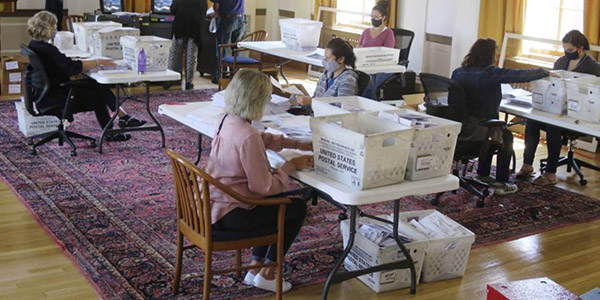
Election workers process absentee ballots for the primary elections in Portland, Maine / David Sharp / AP
THE ATLANTIC
The 'Blue Shift' will decide the election | Charles Stewart III
The blue shift remains little studied and poorly understood. In a 2015 paper, Foley and the MIT political scientist Charles Stewart III found evidence that the blue shift was correlated with the number of provisional ballots cast.
Story at The Atlantic
THE NEW YORK TIMES
Vote Counts Change. Please Don't Panic.
"What concerns [MIT election expert Charles Stewart] isn't voting fraud, but rather how a changing vote total that tends to move in one direction can be misunderstood by an anxious public and exploited by politicians eager to preserve any advantage. 'It may start to look as if, when an election goes into extra innings, one of the two teams is given extra at-bats."
Story at the New York Times
ASSOCIATED PRESS
'Poor People's Campaign' eyes low-income voters in 13 states | MIT Election Lab
A coalition of activists, unions, and religious leaders inspired by the Rev. Martin Luther King Jr.’s last organizing effort said Tuesday new data suggest low-income voters in key states could swing some U.S. Senate races.
Story at the Associated Press
THE NEW YORK TIMES
Mail-in voting has higher rate of 'lost votes’ than in-person voting | Charles Stewart III
A new paper by MIT elections expert Stewart suggests that the outcome of this year’s presidential election — and the problem known as the “lost vote,” in which legitimate ballots go uncounted — could fuel postelection confusion.
Story at The New York Times
THE LA TIMES
Trump can’t postpone the election, but he and the GOP might starve it
"The House months ago approved $3.6 billion to aid local and state elections officials in dealing with an expected flood of mail-in ballots this fall, something that threatens to overwhelm elections officials in states where voting by mail is a relative novelty. The money has stalled in the Republican-controlled Senate — part of the larger stalemate over a new round of help for people and businesses devastated by the economic impact of the pandemic."
Story at The LA Times
ABC NEWS
Counting all ballots in November may take several weeks | Charles Stewart III
Given the failture of the Senate to help the States develop infrastructure to process the massive increase in mail-in-voting, Stewart, director of the MIT Election Data & Science Lab, is concerned that the time need to count all ballots properly, and the resulting confusion, could last for "a couple weeks, maybe longer." The resulting acrimony, he said, "could make Florida in 2000 look like a garden party."
Story at ABC News
WGBH
Understaffed polling stations and vote processing hurdles | Charles Stewart III
Stewart, the Kenan Sahin Distinguished Professor of Political Science at MIT, pushed back on the idea that mail-in voting itself is the issue. He expressed concern instead about how understaffed polling stations and processing hurdles could delay results, and potentially sow doubt in the public's mind.
Commentary at WGBH
THE BOSTON GLOBE
Should voters rank their preferences instead? | Jesse Clark
“Without some voter outreach and investing both time and money...you won't have a system that improves much on what we already have,” said Clark, a PhD candidate at MIT who has closely studied ranked-choice voting.
Story at The Boston Globe
THE WASHINGTON POST
Mail-in voting could accidentally disenfranchise millions of voters | Charles Stewart III
There is evidence that mail-in voting has the unintended consequence of disenfranchising of millions of eligible voters. “The pipeline that moves mail ballots between voters and election officials is leaky,” the study concluded.
Story at The Washington Post
JULY 2020
FOREIGN AFFAIRS
America’s democratic unraveling | Daron Acemoglu
Countries fail the same way businesses do, gradually and then suddenly. “The next administration must confront endemic racism as well as economic inequality,” writes Institute Professor Daron Acemoglu of how to address the unraveling of U.S. institutions.
Story at Foreign Affairs
THE BOSTON GLOBE
Defund the police makes some Democrats uncomfortable. | Ariel White
White compared activists calling for dramatic changes to those fighting for gay rights in previous decades. “Public opinion was not on their side and yet people had a very clear vision that they ultimately pulled the public along with.”
Story at The Boston Globe
THE ATLANTIC
The looming threat to voting in person | Charles Stewart III
Stewart underscores the importance of developing strategies that allow Americans to safely vote in-person for the forthcoming presidential election: "The current trajectory in many states suggests that the demand for in-person voting will hugely outstrip the supply of poll workers and polling places. This imbalance erects barriers to voter participation and needlessly jeopardizes the health of poll workers and voters."
Opinion at The Atlantic
CBS
Election experts explain why mail-in voting is secure and honest | Charles Stewart III
Comments by Trump and Barr have baffled election officials and experts who say a complicated and detailed set of safeguards in place are expressly designed to detect and prevent fraud and interference. "You would have to reproduce the entire election administration apparatus somewhere in the middle of Siberia," says Stewart.
Story at CBS
PBS
What the government should learn from this pandemic | Peter Temin
Now, as states are reopening, the economy is adding back some jobs, but the effects of the pandemic and the recession it plunged the country into will likely be felt for years, said Temin.
Commentary at PBS
JUNE 2020
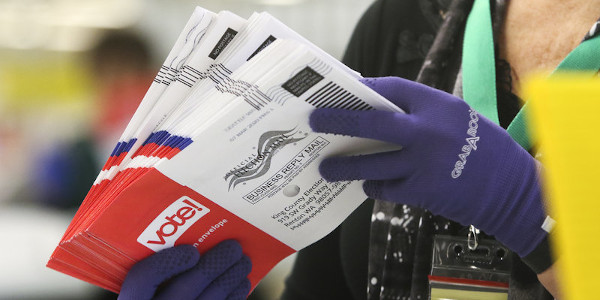
An election worker sorts vote-by-mail ballots; photo by Jason Redmond/AFP via Getty Images
NPR | NATIONAL PUBLIC RADIO
Why is voting by mail (suddenly) controversial? | Charles Stewart
The practice dates back to the Civil War, according to MIT's Election Data Lab, when soldiers were given the opportunity to vote from the battlefield. States began expanding absentee voting laws in the late 1800s to accommodate voters who were away from home or sick on Election Day.
Story at NPR
WASHINGTON POST
Mail-in ballots have much higher rates of not being counted | Charles Stewart
A Massachusetts Institute of Technology study found that in the 2008 presidential election, 7.6 million of 35.5 million mail-in ballots requested were not counted because they never reached voters or were rejected for irregularities. That is a failure rate of more than 21 percent.
Opinion at The Washington Post
BLOOMBERG GOVERNMENT
Trump’s mail-in voting fraud claims draw Republican critics | MIT Election Lab
That could fuel allegations of fraud and official manipulation such as systematic miscounting, said Nathaniel Persily, a Stanford Law professor leading the Stanford-MIT Project on a Healthy Election.
Story at Bloomberg Government
THE NEW YORK TIMES
Georgia havoc raises new doubts on pricey voting machines | Charles Stewart
“The problem seems to have been a perfect storm (overused metaphor, but apt here) of new equipment, hasty training and a crush of tasks associated with both getting the mail ballots out the door and processed AND with running an in-person voting operation.”
Story at The New York Times
WBUR
Mattis calls out clearing protesters 'abuse of executive authority' | Jim Walsh
Former Secretary of Defense James Mattis has called the decision to clear peaceful protesters from outside the White House this week an "abuse of executive authority." Host Jeremy Hobson speaks with Jim Walsh, Here & Now security analyst and a senior research associate at Massachusetts Institute of Technology's Security Studies Program.
Conversation at WBUR
WBUR
What do the Inspector General firings say about American democracy? | Joel Brenner
Brenner, Senior Research Fellow at MIT's Center for International Studies, shares his experience as inspector general and discusses the president's firing of at least five inspectors general. Brenner is former inspector general for the National Security Agency, and later senior counsel to the NSA.
Conversation at WBUR | Brenner Webpage
THE GUARDIAN
Humans are not resources. Coronavirus shows why we must democratise work
In a letter co-signed by MIT Anthropology Professor Susan Silbey, scholars declare that "Working humans are so much more than 'resources.' This is one of the central lessons of the current crisis. ...Human health and the care of the most vulnerable cannot be governed by market forces alone."
Letter at The Guardian
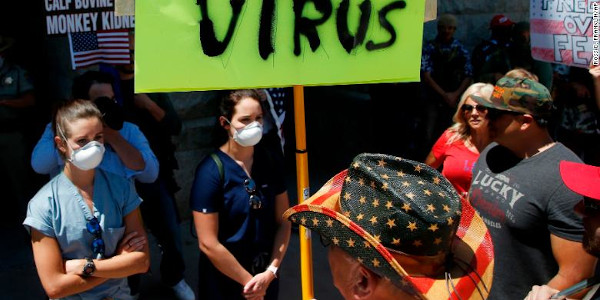
Image via CNN
CNN
American exceptionalism and its response to the coronavirus | Andrea Campbell
"It's always been the orientation of America on balance, compared to other countries, to put a priority on individual freedom and liberty," says Andrea Campbell, a professor of political science at the Massachusetts Institute of Technology who studies the intersection of politics and public health..."Americans have this very strong sense of American exceptionalism — that the US is different than other countries and superior in many ways," Campbell says.
Story at CNN
MAY 2020
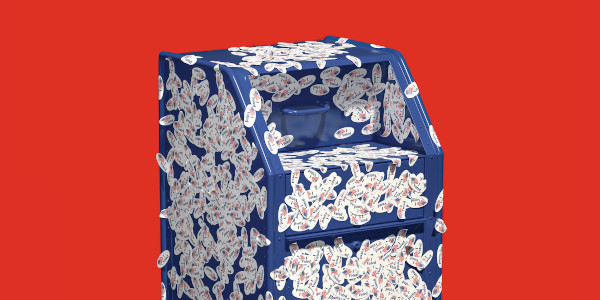
Illustration by Pablo Delcan and Lisa Sheehan for The New York Times
VOX
Many world leaders have seen double-digit polling surges | Adam Berinsky
“If there's any president I would expect no rally effect for, it would be Trump,” said Berinsky, a political scientist at MIT whose research focuses on public opinion during wartime.”
Story at Vox
THE NEW YORK TIMES MAGAZINE
Will Americans lose their right to vote in the pandemic? | Charles Stewart
Researchers have found that vote-by-mail hasn't obviously helped one party or the other. Nationwide, about the same share of Republicans and Democrats voted by mail in 2016.
Story at The New York Times Magazine
Related: 14 urgent recommendations for safe 2020 elections
THE NEW YORK TIMES
Can Democrats avoid Trump's China trap? | Rachel Esplin Odell
Odell, a PhD candidate in political science, writes, "Going abroad in search of monsters to destroy won't save Americans from pandemics, but it does risk entangling the United States in a cold war with the world’s No. 2 power."
Commentary at The New York Times
APRIL 2020
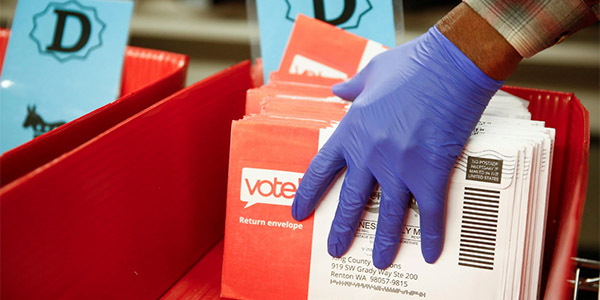
Voting by mail: Currently, five states — Colorado, Hawaii, Oregon, Utah, and Washington — conduct elections almost entirely by mail. Twenty-eight others and the District of Columbia allow voters to cast absentee ballots by mail without providing a reason. Photo: Mail-in ballots being sorted at a processing center in Renton, Wash. Photo: Lindsey Wasson/Reuters
LAWFARE
Ten recommendations to ensure a healthy and trustworthy 2020 election
The country can meet this challenge if Americans begin to prepare immediately."
Commentary at Lawfare
THE WASHINGTON POST
More voting by mail would make the 2020 election safer for our health
"As the novel coronavirus pandemic besieges the United States, more and more observers are suggesting that November’s votes should be cast by mail — allowing the least possible in-person contact, reducing health risks to both voters and poll workers."
Commentary at The Washington Post
THE NEW YORK TIMES
Does vote-by-mail favor Democrats? No. It's a false argument.
Stewart says there is no conclusive evidence that either party would benefit by more voting by mail.
Story at the New York Times
MARKETWATCH
We can rely more on more mail-in ballots for the November election — here’s how
"Postponing the Nov. 3 election is not an option. Both the U.S. Constitution and federal law establish Election Day, and there is no chance Congress could change either in the next months."
Commentary at Marketwatch
Associated Press
Parties mine Wisconsin for clues to voting in the virus era
“It’s harder than we thought to keep people away from voting. People will ask for mail ballots if they’re available to them in larger numbers.”
AP Story
The Guardian
Republicans tried to suppress the vote in Wisconsin. It backfired.
“I think this race showed the value of the belt-and-suspenders approach of making mail voting available for everyone who wants it, but still maintaining as much of an in-person program as possible.”
Story at The Guardian
THE LOS ANGELES TIMES
Coronavirus threatens the November election. Can vote by mail save it?
“Even if people agree this is an emergency and we may need to do this, it’s hard to just wash out of your mind thoughts you have had your entire life,” Stewart said of skeptical elections officials.
Story at The Los Angeles Times
AP NEWS
Switching remaining primaries to vote-by-mail is not so easy
Stewart said the hurdles to implementing voting by mail for all voters is why states might be better off taking only small steps at first. "That could mean simply making absentee ballots easier to get."
Story at AP News
NPR
How primaries are proceeding during a public health epidemic
Stewart comments on the primary process: "In retrospect, it may be that we view these delays as being lifesavers."
Interview at NPR
NBC
Election chaos: Coronavirus fear of voting could keep people from the polls
"It might be at some point you don't push as hard on the mail balloting as you might in order to stay within state norms," Stewart said.
Commentary at NBC
MARCH 2020
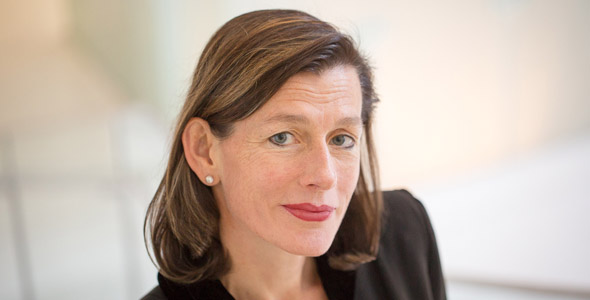
Heather Hendershot; photo by Jon Sachs/SHASS Communications
WASHINGTON POST
The truth about Trump’s uncle | Heather Hendershot
Hendershot delves into the narrative of Tump's self-described "natural ability," which he links to his uncle, Dr. John Trump, who taught at MIT for 40 years. "The notion that 'good genes' have made the president a natural expert in epidemiology is obviously dangerous nonsense. Rather than simply bragging about his inherited 'natural ability,' Trump should serve the nation by bringing his uncle’s values [of knowledge, kindness, and service] to the presidency.
Commentary at The Washington Post
FEBRUARY 2020
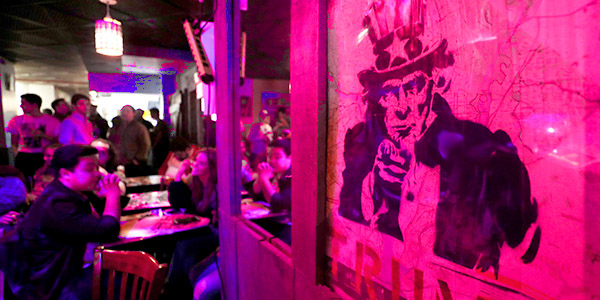
Photo: Marketplace Tech
MARKETPLACE TECH
Iowa caucus verdict: Sometimes, there shouldn’t be an app for that.
MIT political scientist and election expert Charles Stewart comments: "The best use of technology in elections is to do the things that human beings are bad at doing. Human beings are very bad at doing tedious things, and the most tedious of those things in elections is counting the ballots."
Conversation at Marketplace Tech
WIRED
The saving grace of the Iowa caucus debacle
"Flippant as it may sound, it's good that the fiasco happened in a small state and at the beginning of the nomination season," says MIT Professor Charles Stewart III. "Candidates and the public need some time to ramp up their efforts; doing so in small states minimizes some of the consequences of mistakes that inevitably happen."
Editorial at Wired
ASSOCIATED PRESS
Online conspiracy theories flourish after Iowa caucus
These type of cases show it's important for the presidential candidates to foster trust in the system among their supporters, said Charles Stewart III. “I really hope that the candidates will recognize that if they don't defend the system when it can be defended that they are doing harm to democracy and [devaluing] the nomination they're seeking.”
Story by the AP
JANUARY 2020
WBUR / NPR AFFILIATE IN BOSTON
National security challenges facing the US | Jim Walsh
Robin Young speaks with security analyst Dr. Jim Walsh with the MIT-SHASS Security Studies Program.
Listen at WBUR | Jim Walsh
WBUR / NPR AFFILIATE IN BOSTON
The death of Soleimani and repercussions | Jim Walsh
MIT security expert Walsh discusses the U.S. killing of Iranian general Qassem Soleimani and repercussions.
Commentary at WBUR
2015 - 2019
For these years, see the Said and Done/Media Digests, found under Said and Done in the nav bar to the left. Click on the Said and Done edition for any given month, and you will find a link to that month's Media Digest.